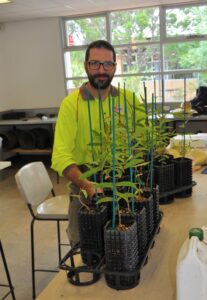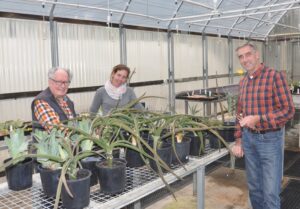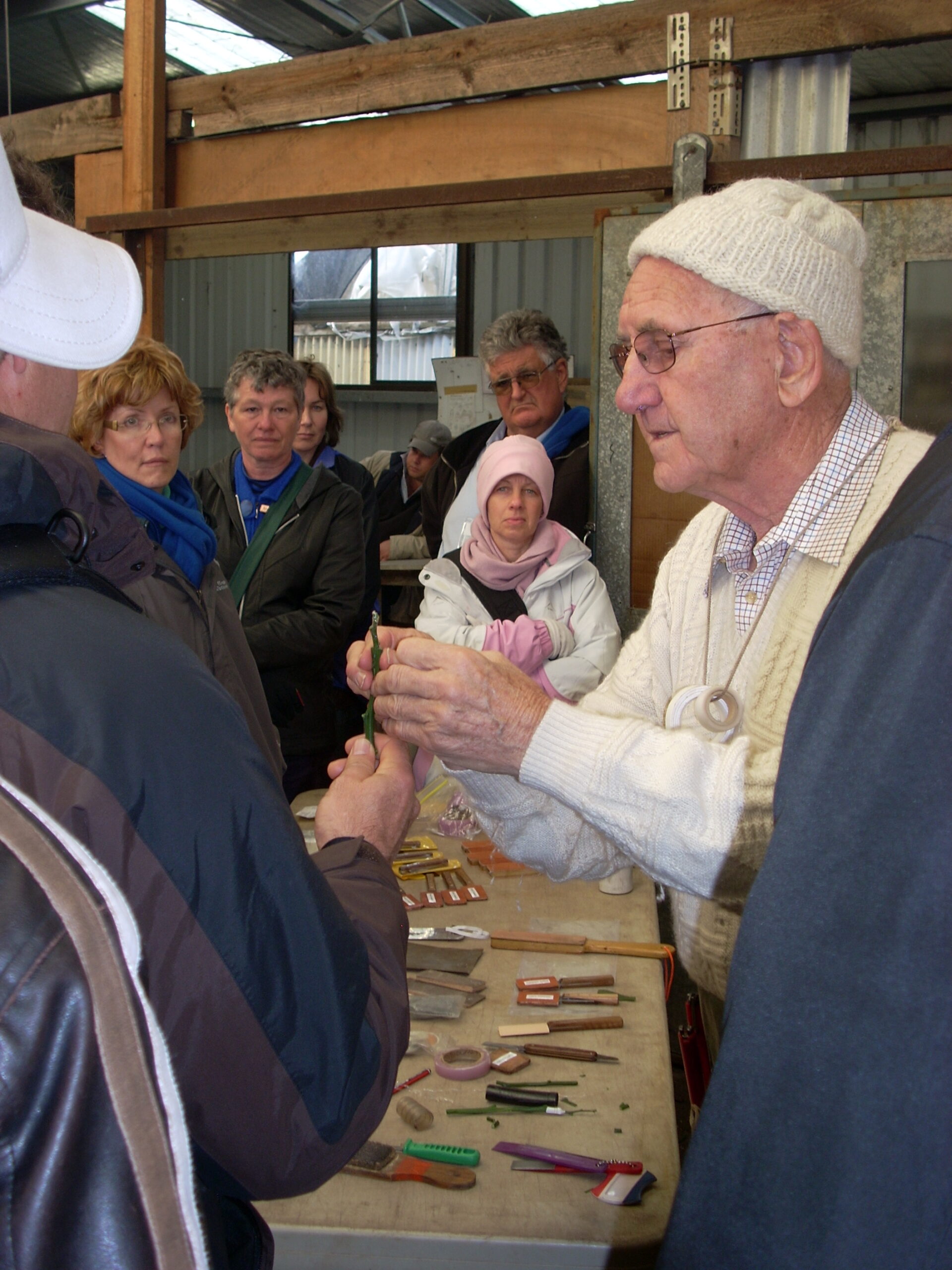Education is key to staying on top of the horticulture game
By Dan Austin –
The old adage ‘you can’t teach an old dog new tricks’ has long been disproven and in reality, older dogs are quite adept at developing new skills. So, with the reputation of mature canines around the world restored, there is no excuse for the ageing horticulturist not to follow suit and ensure we stay at the top of our game.
Actually, the value of education and lifelong learning is the same for young and old. The ‘old dog’ saying is probably more representative of a portion of the population who tend to get stuck in their ways and feel they know best, regardless of age. Thankfully, in horticulture most of us are well aware from the outset of our careers, that we will never know it all, as the field is incredibly diverse, dynamic and ever-changing. That doesn’t stop us trying though.
So, how do you get to the top of the horticultural game and stay there? Formal studies are one of the best options when starting out or looking to upskill to diversify your horticultural opportunities and with traditional TAFE colleges being joined by a myriad or private RTOs (Registered Training Organisations) in recent years, students are spoilt for choice. Horticulture is a big umbrella and accredited trade level qualifications offered within the field include everything from certificates in production horticulture, arboriculture, and sports turf management, to nursery operations, permaculture, and protected cropping. There has even been a Certificate III in Medicinal Cannabis Cultivation and Production, released in recent times.
These types of formal training are essential for any professional, as although we live in an age of information overload, knowledge is much harder to come by. Tools like Google and YouTube are great resources for self-teaching, but they are no substitute for the experience of a good mentor. However, a formal qualification in horticulture is a mere foundation on which to develop a strong educational portfolio. One of the first things I tell fresh-faced students arriving to begin their studies in horticulture is that the content of the curriculum forms only a small portion of the learning opportunities they will experience while undertaking their training. There is a great deal of valuable information exchanged informally between students during breaks, guest speakers break ranks and go off-topic – value-adding to no end and no
two site visits will ever yield the same information during tours. Campus based studies also provide a networking goldmine. They bring together likeminded trainers each with their own lifetime’s accumulation of industry contacts.
Beyond formal studies and their fringe benefits, there are ample opportunities to undertake formal unaccredited training in horticulture. Workshops and conferences are excellent ways to stay current and up to date with best practices. The silver lining of the global COVID19 pandemic has been the universal embrace of technology and video conferencing in the wake of travel restrictions. While it is hard to match the experience of getting together in the flesh to network and exchange ideas, face to face events are expensive. For the organiser there is the venue, food, marketing and so on, while for attendees there are travel and often accommodation expenses in addition to entrance fees. So, moving online has made everything cheaper and access to the voices of industry experts arguably more accessible to a wider audience then ever before. The idea of taking a tour of a cutting-edge nursery in America while reclining in the loungeroom armchair would have seemed daft just a few years ago, but I did it this week.

The challenge then becomes how to be made aware of these events when they are set to occur. The best way to achieve this is through membership with industry bodies and plant societies. If you are serious about being the best at what you do, becoming a member of at least a handful of these organisations should be a priority in your professional planning. Smaller state-based societies offer access to learning opportunities with professionals and enthusiasts alike and often subject fanatics you can bet the people you meet will know their stuff. National bodies provide a bigger picture and sometimes more structured training and events but big or small membership to these organisations pays off.

There are literally hundreds of horticultural societies to choose from and I would not rule out joining any of them, but the following organisations provide proven bang for your buck and are well worth your research, whether to join or just to gain an awareness of the resources they offer.
- IPPS (International Plant Propagators Society) – a global network of professionals with an interest in plant production, including horticultural research and education, with the aim to improve the knowledge, skills, productivity and professionalism of its members.
- Hort Innovation – the grower-owned, not-for-profit research and development corporation for Australia’s horticulture industry, with a primary function in creating value for horticulture growers and those across the horticulture supply chain.
- AIH (The Australian Institute of Horticulture) -who aim to help enthusiast and professional horticulturists build connections and networks that make horticulture the most rewarding, vibrant career in Australia and Asia.
- GIA (Greenlife Industry Australia) – the peak industry body for businesses and organisations providing products and services for greenlife production; produce, supply, and retail greenlife or promote the benefits of and share greenlife with the community.
A good education is the key to success in any industry and horticulture is no different. The difference is we are fortunate enough to work in an industry built on what is a desirable pastime for most. Spare a thought for the educational journeys of those in fields like accounting or finance and it quickly becomes apparent that lifelong learning in horticulture is a great gig. When staying current involves sunshine and plants, really, there is no excuse for getting stale

